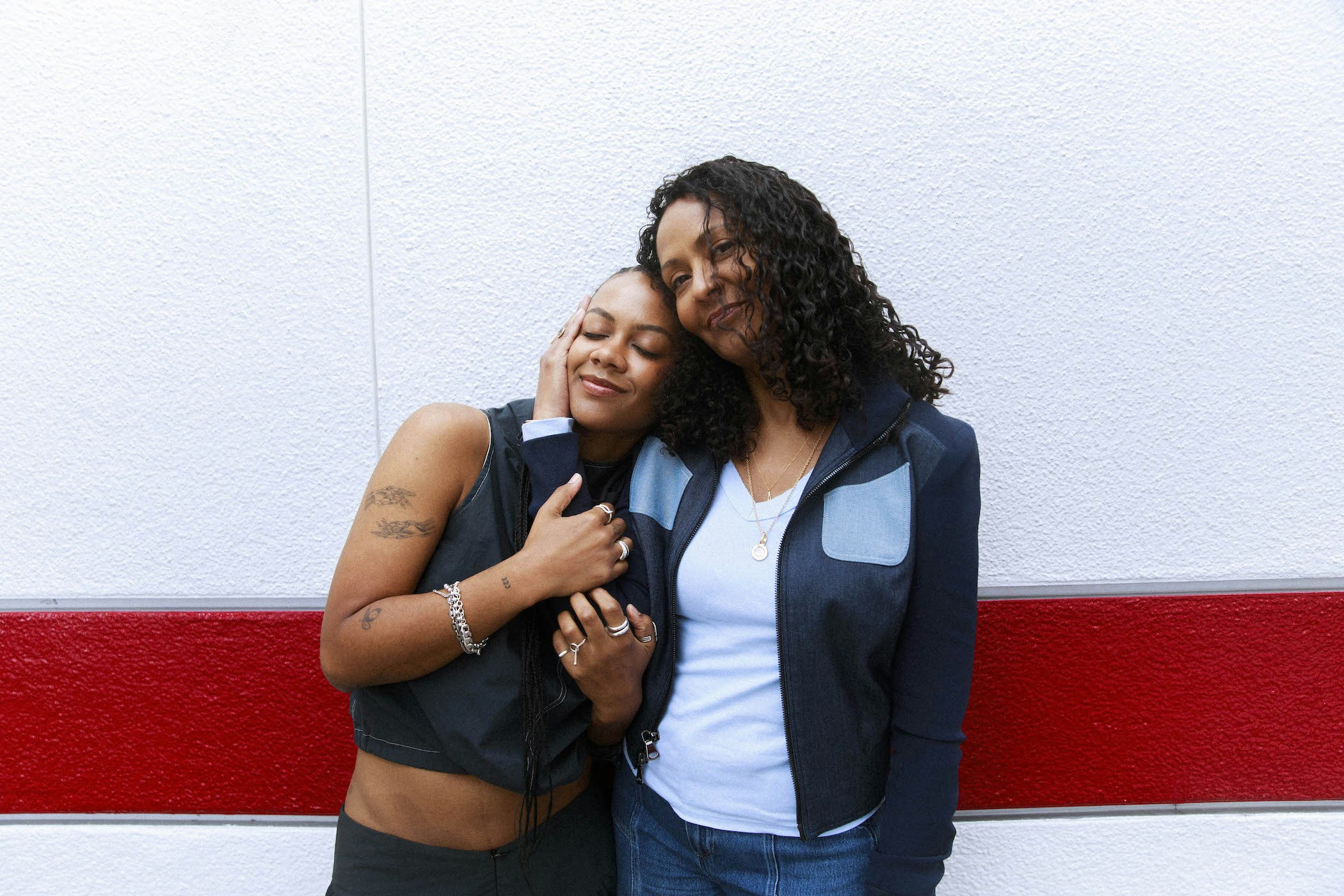
Getting Sticky with Peyton Dix and Alisha Keyes
Photos by Jennifer Rovero, Words by Anamaria Glavan
This generation’s defining trait is its refusal to stay silent about inherited trauma. For many, the commitment to doing things differently means reimagining parenting: meeting emotional needs with the same urgency as physical ones, a concept that would have been considered revolutionary just a few decades ago.
And we all know that one friend—the one whose mom already seemed to be doing this. The mom everyone loved, the one you could talk to without judgment, without fear. As adults, we finally have the distance to unpack what made those moms feel like magic. But it’s still rare to hear directly from them: What made you so good at this?
Enter Peyton Dix and her mom, Alisha Keyes. Their relationship could easily be the plot of a Hallmark movie. But like any strong mother-daughter bond, it didn’t just appear out of nowhere. It was built brick by brick, the mortar forged from messiness.
There’s a scene in Lady Bird when Saoirse Ronan flings herself out of a moving car mid-argument with her mom. Peyton once did the same, throwing herself out of the passenger seat in the middle of Hollywood during a fight with her mother. And just like in the movie, that ebb and flow of tension eventually gave way to something deeper. The realization that a mother is more than just a parent, a daughter more than just a child.
Below, a conversation between Peyton and Alisha about growing up, coming out, and what happens when love is matched by the secret sauce that too often goes unnoticed: mutual respect.
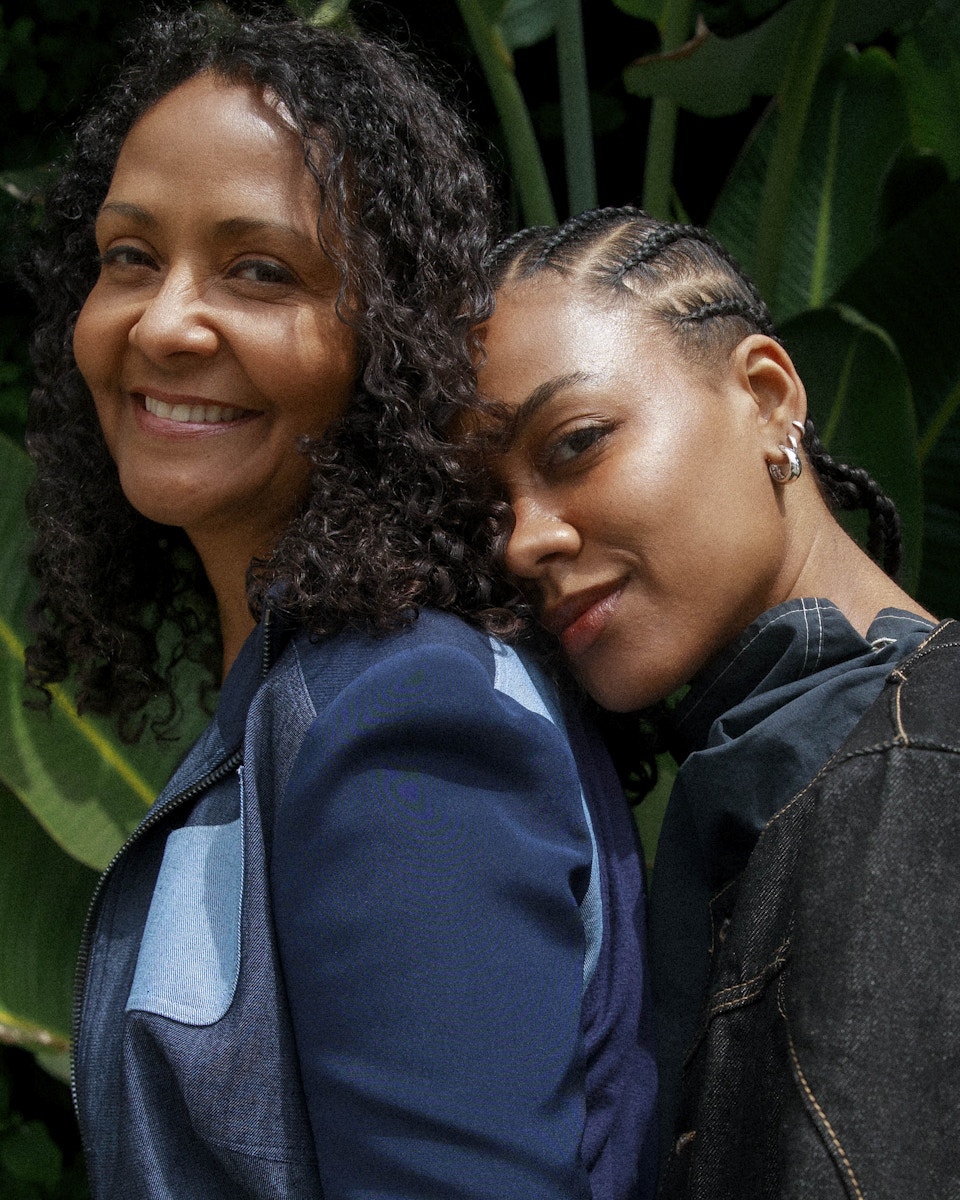
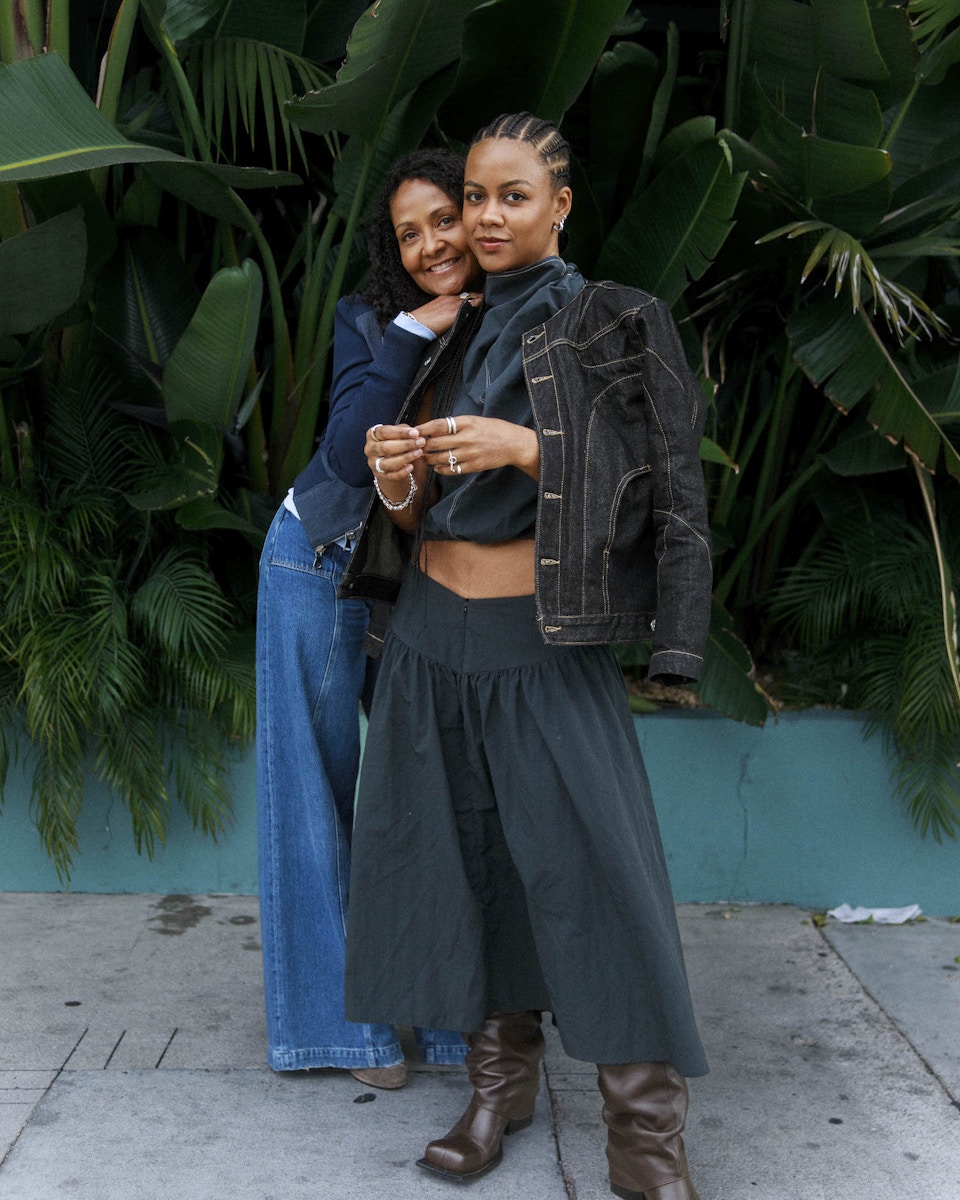
Alisha: Growing up, even with my aunts, uncles, and grandmother, everyone who helped raise me, kids were expected to sit still, be good, stay quiet. You didn’t have a voice. That definitely shaped my shyness and the feeling that my voice wasn’t important or valued, which influenced how I raised Peyton.
Around age 9 or 10, my mom found her path and we joined the Black Panther Party, and the Party became a big part of my life. Public schools in Oakland were awful back then. Black kids didn’t feel valued; we were just shuffled through the system. But in the Black Panther Party, the focus was on knowing your history, your ancestors, and fighting against oppression.
That shaped who I am today. Injustice really bothers me. I refuse to let people treat others unfairly, especially Black women. I work in a very white, male-dominated organization, and I’ve been there 16 years, advocating for Black female engineers. I even wrote my thesis on how these engineers come in excited but left within two years because they felt like they didn’t belong.
When Peyton was little, I knew right away she was different from me. She had this sense of self I really admired. She was adventurous and courageous but was still cautious too. That’s where I see myself in her. She would push the line but not cross it.
Peyton: I’m doing The Artist’s Way right now and a lot of it is reflecting on early life blocks. I think in my family, creativity wasn’t always the priority—business and work ethic were—but those values still contribute to how I create today.
I tried everything. I did rowing for one week, ice skating for one week, then said, It’s cold. I don’t want to do this. And my parents were like, Are you f***ing joking? But I danced for years and stuck with it. I went to expensive schools but we were balling on a budget so they were like, If you’re gonna do this, it better last. I was so empowered to use my voice that sometimes I used it in ways that weren’t always productive. My parents were like, We told her to speak up, but now she won’t stop. It’s funny.
Alisha: We're so different. I’m conservative, reserved, introverted; she’s adventurous, willing to take risks. She’s been like that since infancy. I was super protective because of my own trauma. I saw myself as a lioness protecting her cubs.
I might’ve been too protective in making sure they were in private schools. I worked my back off to keep them there. I don’t know if it was always helpful but I knew I didn’t want them to feel unsafe like I did growing up. That still shows up. I try to step back and let her take risks because she’s always been that way. Not reckless, but brave. She tries things without causing harm. She's not careless. And I still find ways to protect her. She texted me the other day, Hey Mom, I need to figure out my 401k. And I was like, Yup. I’m the one to help you with that. That’s still protecting her future.
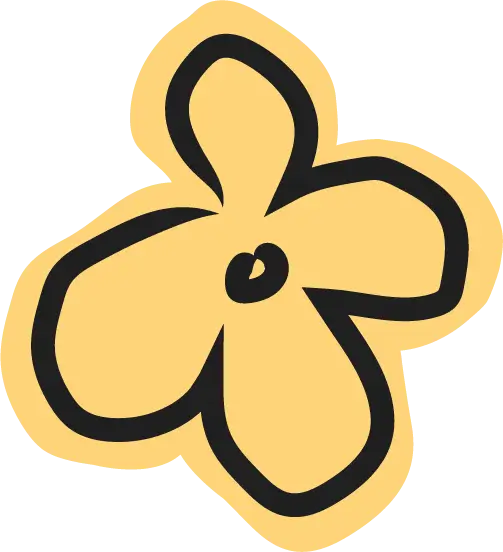
"I try to step back and let her take risks because she’s always been that way. Not reckless, but brave. She tries things without causing harm. She's not careless. And I still find ways to protect her. She texted me the other day, Hey Mom, I need to figure out my 401k. And I was like, Yup. I’m the one to help you with that. That’s still protecting her future."
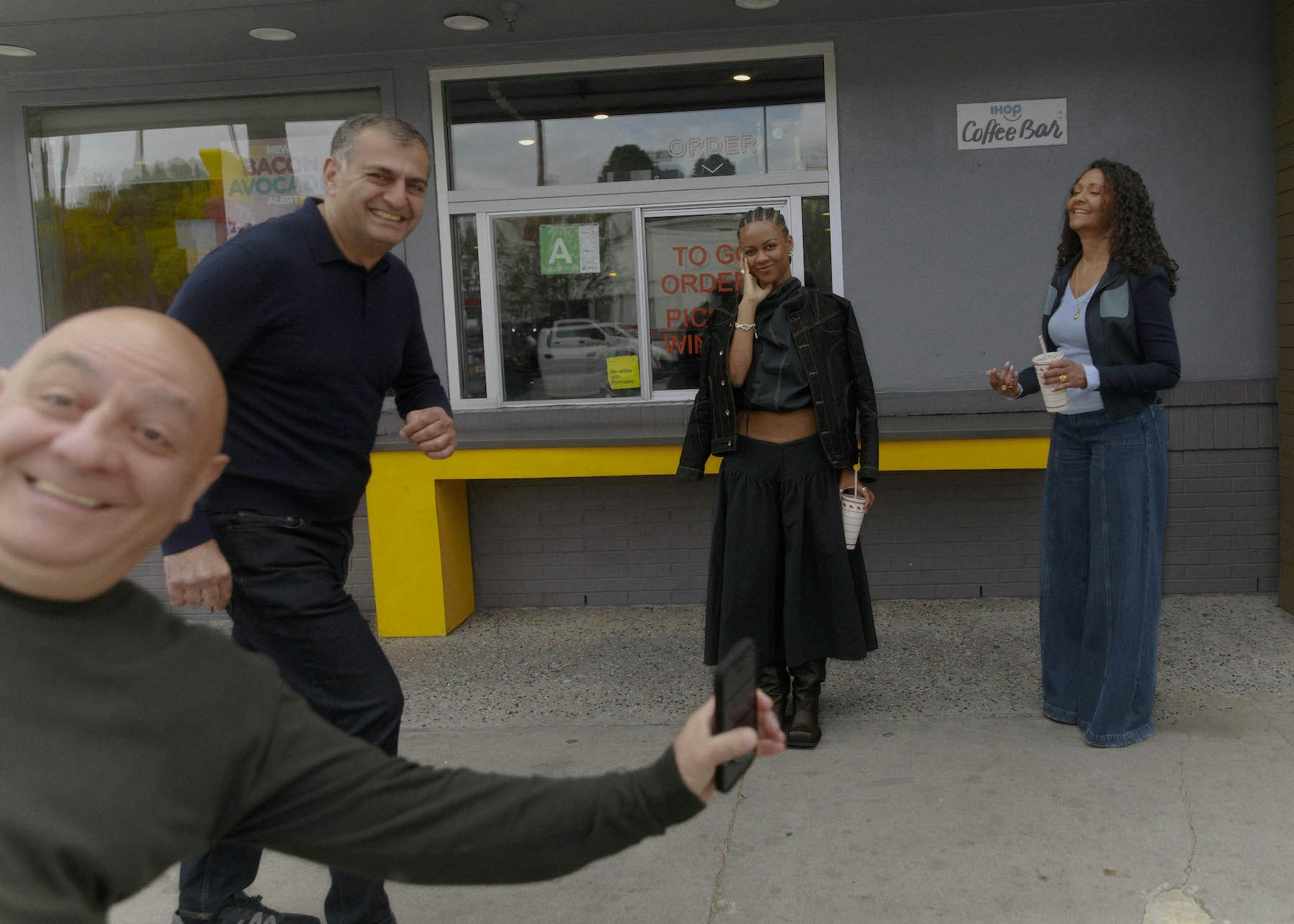
Alisha: I remember holding our son when he was first born and his dad said, If our baby was gay… And we both said we wouldn’t care. That made me feel so good, like I chose the right kind of father for my children, someone who would accept them as they are. This was in the ’90s. Lew would do fun things like dress up in Peyton’s clothes—
Peyton: They spent years thinking my brother was the gay one. They were mentally preparing for that. But he was just expressive. It was me who was gay the whole time.
Alisha: When Peyton came out to her dad, he was so proud that she told him first. I think she actually came out to me first but I didn’t realize it.
Peyton: Technically I did. A few years ago my mom found this letter I wrote to her when I was maybe in middle school. Tiny and folded up.
Alisha: Yeah, I found it in the pocket of a robe I never wore.
Peyton: It said something like, Mom, I have something to tell you. Don’t bring this up until I’m ready. I didn’t even know what bisexual meant at the time. I guess I slipped it under her door. I don’t remember it, but technically, I came out to her first.
Alisha: I found it four or five years ago when I was moving. I cried.
Peyton: Yeah, and then she called me asking if I was ready to talk. I’m like, Girl, I’m way out now. I have a full gay life. But it was cute.
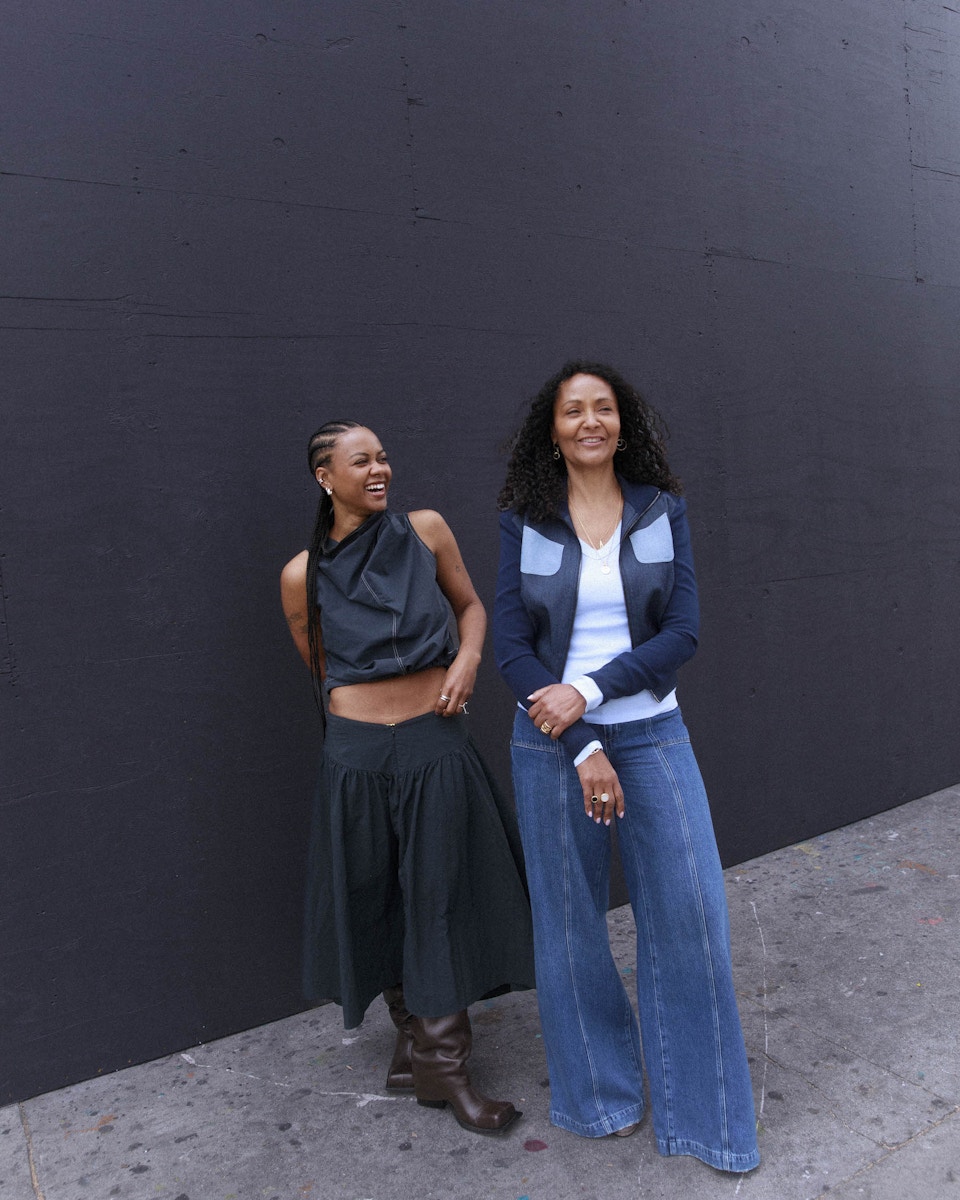
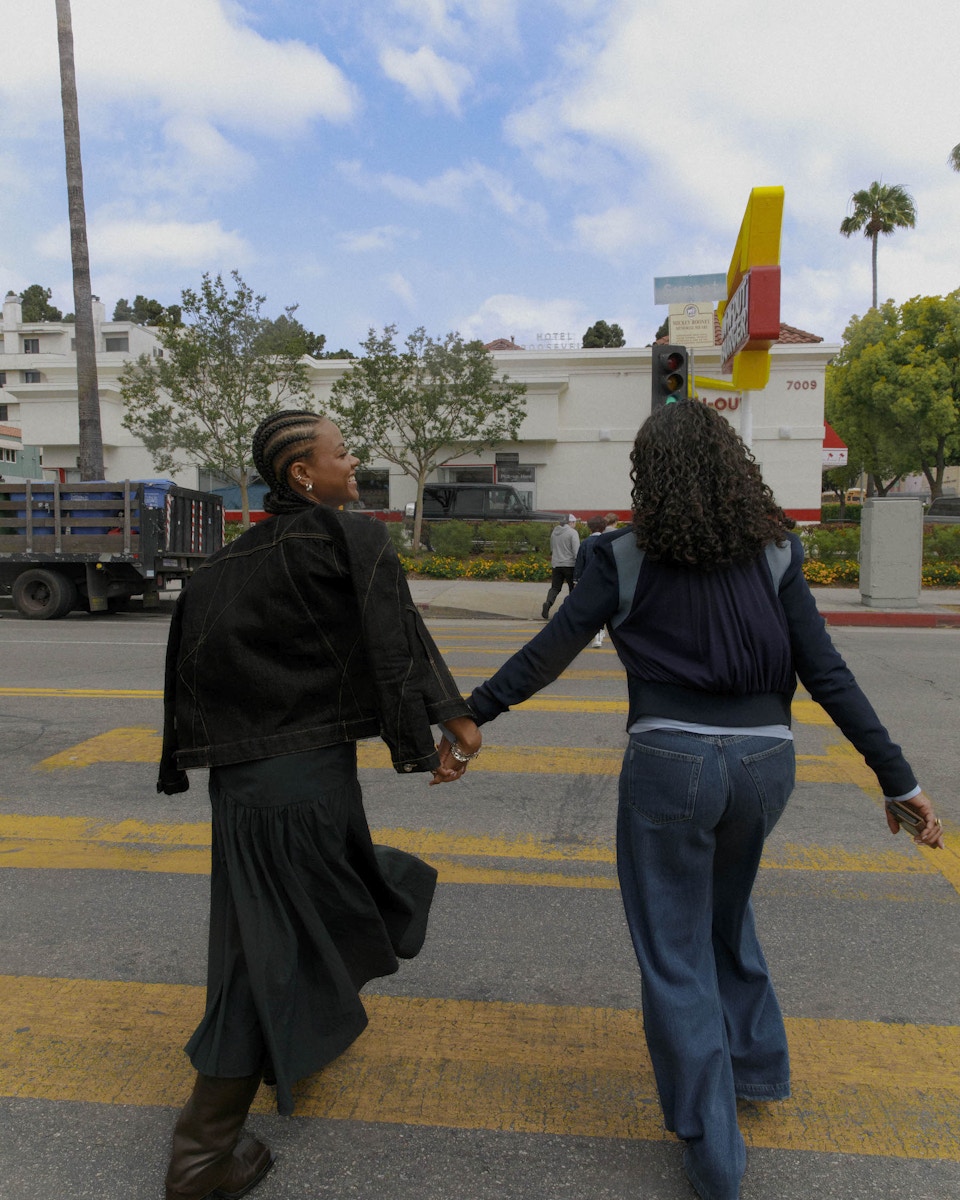
"When I was pregnant, I didn’t want a girl. I didn’t know how to do hair and I was afraid of hormones and drama."
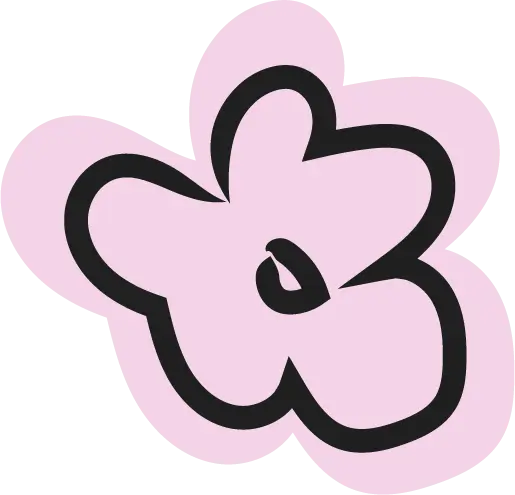
Alisha: When I was pregnant, I didn’t want a girl. I didn’t know how to do hair and I was afraid of hormones and drama.
Peyton: And she was right. So much drama. So much hair.
Alisha: But the second she was born I was in love. I called her my ice cream. She was so creamy and dreamy and sweet. I’d cuddle her in bed, take so many pictures. She was such a happy baby. At nine months old, I’d pick her up and pat her back and she’d pat me back. And I eventually learned how to do her hair… mostly.
Peyton: Yeah, I got the job done.
Alisha: But she was hormonal early. Like eight or nine, she started talking back. And at the same time, I was entering my own hormonal stage, early perimenopause, so there we were: I’m in my 40s and she’s nine, ten, eleven, twelve. We’re both hormonal. I’d wonder, What happened to my sweet little baby girl? My little love who used to want to dress like me every Easter. We’d go to church in matching outfits all the time.
There’s a scene in Lady Bird that’s totally Peyton and me. They’re shopping and arguing and it seems like it’s about to blow up, but then the mom pulls out a dress and says, Look at this, and the daughter goes, Oh my god, I love it. Let’s try it on. Argument over. That’s us. Peyton has definitely had her dramatic moments. Drama with a capital D. She’s pulled a few stunts.
Peyton: Before Lady Bird even came out, I jumped out of a moving car once. In Hollywood.
Alisha: One time we got into it over Amy Winehouse.
Peyton: She’s an artist!
Alisha: I’m going, She’s not that amazing. And Peyton’s defending her. Her voice, her artistry. So now we’re in this full-on argument. We walk into the mall, and Peyton runs off. I can’t find her.
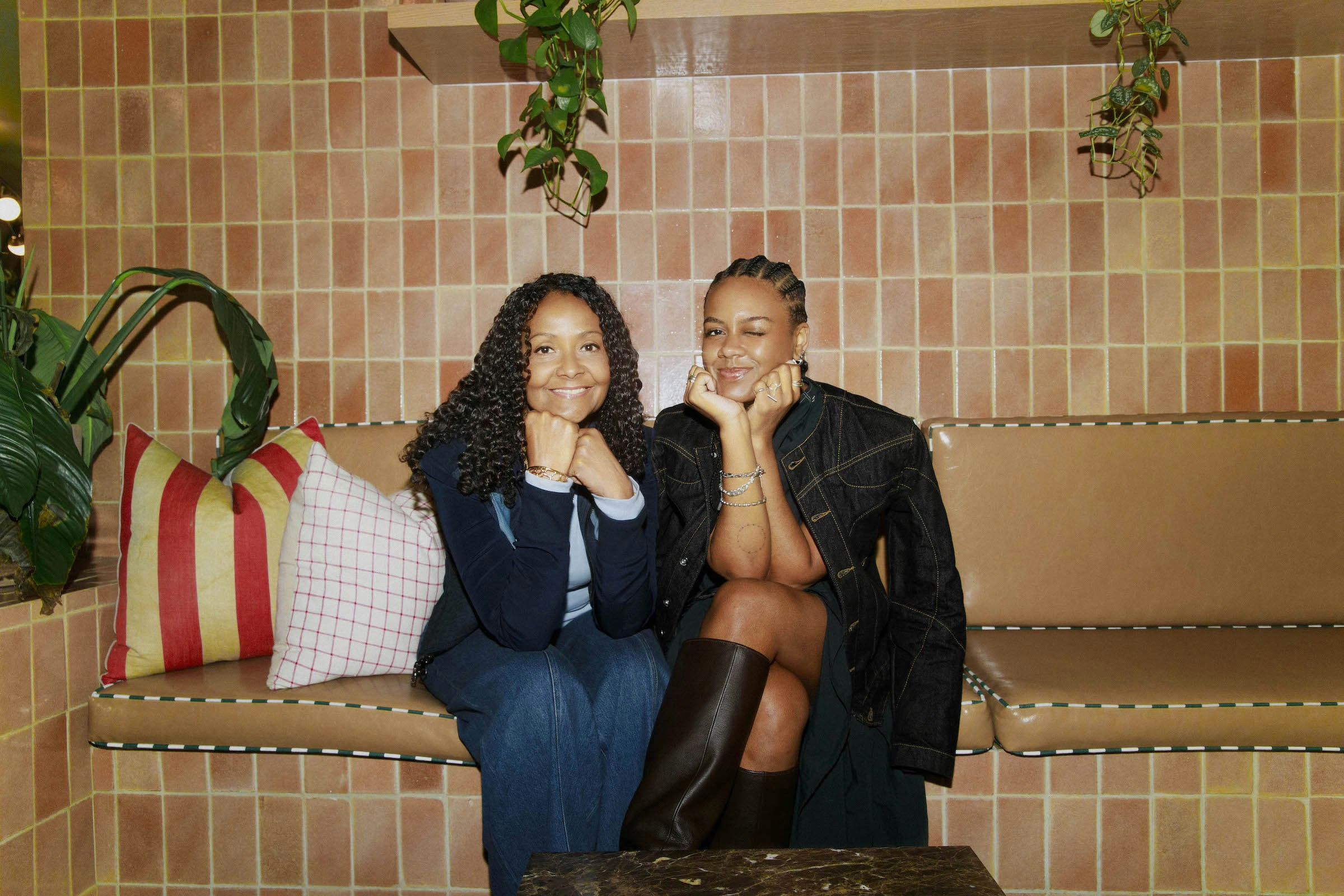
Peyton: I think if we hadn’t gone through all of that, we wouldn’t have the strong relationship we have now. We’ve seen the extremes of how we’ve loved and how we’ve fought. And now when we argue, we come to it with appreciation and level-headedness. Like, I know you, I’ve seen all versions of you, and vice versa. Now that we’re both adults, our arguments are more grounded in understanding. Of myself and of her.
I was crazy. I didn’t think a relationship like this with any mom was possible, especially not with my mom. There were so many extremes, I thought we’d never really see eye to eye on some things. I get DMs all the time from moms who follow me asking for a tutorial on how to connect with your daughter like this, how to talk so openly. I talk to my mom about everything. Sex, relationships, work stuff, 401k, Roth IRA.
And what makes my mom different is that there’s almost nothing she doesn’t know about me and yet we still have boundaries. Maybe that came from some distance? Me moving to New York forced us to be really intentional about the relationship we built when I’m back in California. The way we are now is only because my mom has made an honest commitment to listen. She doesn’t shut me down when I have a different opinion. If we need some space, we take it and come back to each other more grounded.
She makes the effort to stay informed; about what’s going on in Palestine, with queer and trans bodies and rights. That’s rare. A lot of moms, even liberal ones, stop where they’re comfortable. But she pushes herself to sit in the discomfort and have the hard conversations. That’s really cool.
And I know that maybe what’s more difficult for my mom is that I’m an open book. You can meet me for 10 seconds and I’m like, It all goes back to 1994, let me tell you about the time… Immediately. My mom is much more closed off. But her ability to be open with me—about her childhood, how she feels as an adult, about dating now, about me or my brother or even my dad being crazy—that honesty allows me to see the fullness of who she is. Not just as my mom, but as a whole woman who exists in the world.

"what makes my mom different is that there’s almost nothing she doesn’t know about me and yet we still have boundaries. my mom has made an honest commitment to listen. She doesn’t shut me down when I have a different opinion. If we need space, we take it and come back to each other more grounded."

Alisha: Sometimes I’ll ask myself, What would Peyton do in this situation? She’s a risk taker. She has a strong vocabulary, she’s a fast processor, she’s witty, she has all these traits I admire deeply and don’t have myself. She has real courage, and a strong, loving friend group who truly adore her. But I say these things all the time. I believe you should give people their flowers the moment you see them. Not when they’re dying, not in ten years. Today. This is why I value you.
It really shifted for me when someone at work asked, How did you respond when your daughter came out? And I said, the number one thing for me, the thing that stays present in my mind, is that I value the love of my daughter more than anything.
So I’m willing to hear her, to listen to her journey and her experience. Because it’s hers, and that makes it important to me. And if I make that a priority, then I want her to always feel that she’s not being judged and not being told how to be.
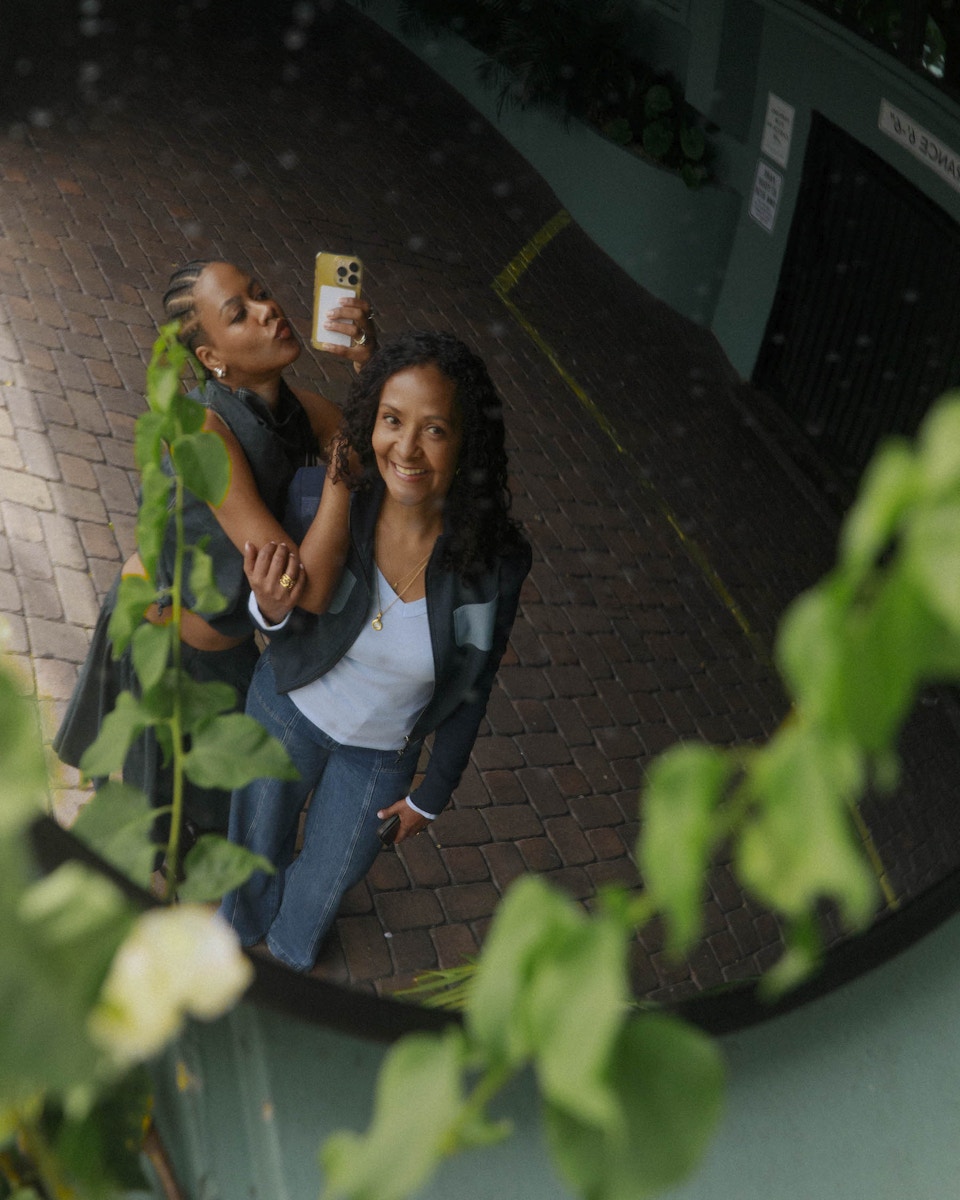
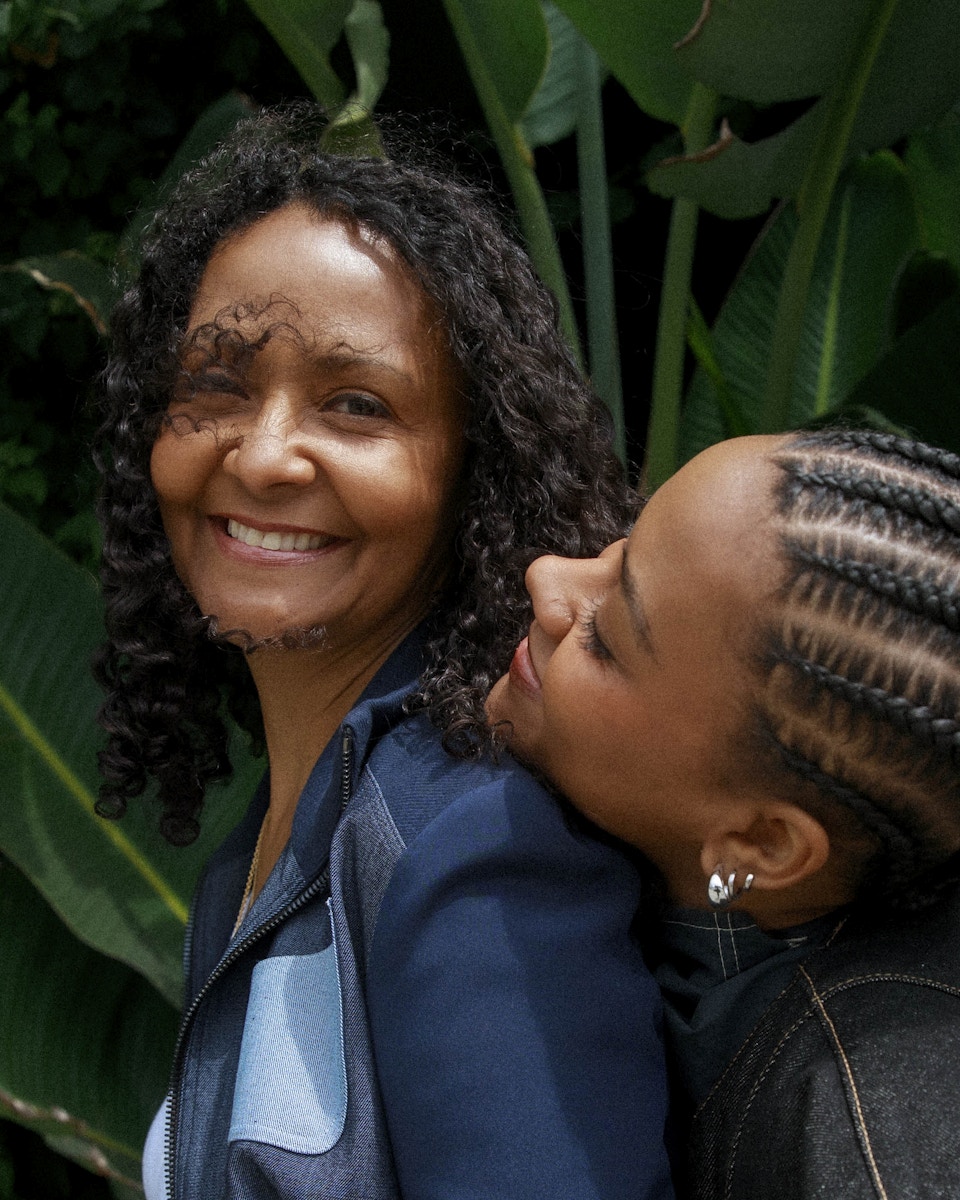
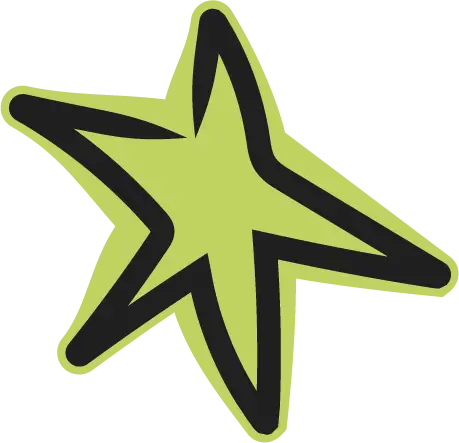
"It really shifted for me when someone at work asked, How did you respond when your daughter came out? And I said, the number one thing for me, the thing that stays present in my mind, is that I value the love of my daughter more than anything."
Peyton: I will say I actually feel disappointed in my coming out because I wanted more drama from it. No one really cared. Everyone kind of saw it coming. I was making out with every girl in middle school and high school. I had boyfriends too, but I was always kind of a free spirit. Nobody was shocked that I was gay.
I think there was still this idea of the nuclear family. I officially came out in college, but back then—even though queer people can obviously have families and it can look so many different ways—it was still something to emotionally process. And my queerness isn’t even gendered in a traditional way. I think society has shifted a lot in how we talk about coming out now.
I always talk about me being gay forever, but what you said about giving people their flowers made me think… Every single card my mom has ever written to me, it’s never just “Love you, happy birthday.” It’s always a whole paragraph. And she has incredible handwriting. I admire that deeply. Handwriting is a lost art.
There’s such sincerity in how she communicates love. To me, to my brother, to all of our family. I think my mom’s patience and forgiveness, especially given everything she went through when I was a teenager and a child is incredible.
I think her lived experience gave her the ability to relate to so many people and care for so many people. Every single one of my friends immediately feels comfortable with my mom, and open about whatever’s going on in their lives.
Alisha: I didn’t want children when I was in my 20s. At all. Because I was afraid. I didn’t want kids.
Peyton: I did not know that. God, you’re such a good mom—I didn’t know that.
Alisha: I had a cousin who was innately natural at being a good mom, and I was just clumsy and a mess. I didn’t know what I was doing. I was like, Is there a book? Where are the books? I will read a book.
Peyton: Going ham in a Barnes & Noble just trying to figure it out.
Alisha: Literally looking for the book. What to Expect the First Year was the one. I had Lew first, and he was really the hard one because I didn’t know how to raise or take care of a baby. There were times where I made some serious mistakes. And I’d say things my mom used to say, and I’d cringe and think, Why would I choose to say that? But it was already out there.
After Lew was born and I had a good year and a half of taking care of a baby, I was definitely more skillful when it came to the mechanics of being a mom. But Peyton being a girl made the experience very different.
Of course, the hair was a thing. But she was just so very different from Lew. Lew was a little more like me; quiet, reserved, introverted, kind of kept to himself. Peyton was the most adventurous. She ran away once at the San Diego Zoo and took off in the gorilla path.
And Lewturns to me, he was maybe six at the time, says, Mom, you stay right here. I’ll go get her. He had such a good sense of direction, even as a kid. And it was maybe 15 minutes later, I stood right there, thinking of both my kids, and he found her and brought her back, holding her hand tight, looking all stern.
So no, I would not say I knew everything about being a parent. There were definitely moments where I felt like I made mistakes. But the main thing I learned early with Peyton was to allow her to have her voice. To not judge or put a cap on her wanting to learn or express herself. I learned that through trial and error.
From my own upbringing, my mom’s absence, and my grandmother’s presence… I knew I wanted Peyton to feel close to me, to be in a safe environment at home and at school, and to be surrounded by like-minded parents.
If she was going to someone’s house, I’d ask: Do they have a big brother? Who is that? Let’s meet those parents. No cell phone, no computer access too early. I didn’t want to expose my kids to things they weren’t ready for.
I looked for books, but the real shift came when my kids joined Jack and Jill at 5 years old. Those women became my village. If my kids made emotional connections with other kids, I’d reach out to those moms for playdates and to get to know one another. I always vetted the other parents to make sure my kids were safe.
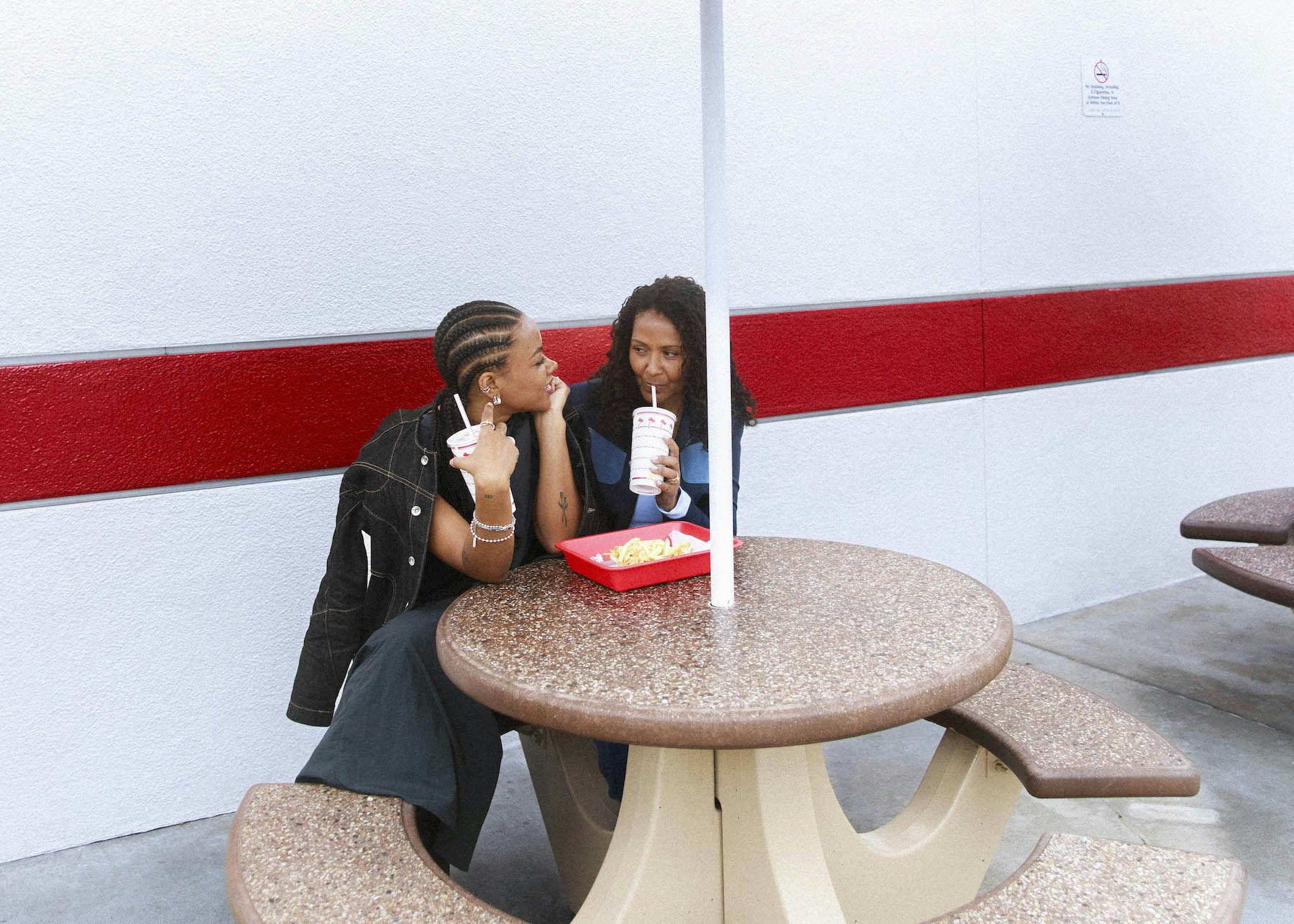
"If we have a world to live in, I’d love to have a child in it. What’s interesting is a lot of my friends, both queer and straight, aren’t interested in parenthood. So it kind of makes me feel more drawn to it, because I’m thinking I’ll have a lot of babysitters and I can still be at the club."
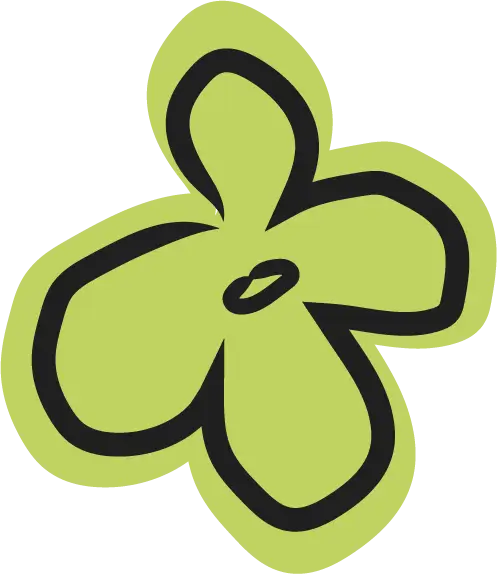
Peyton: I love it. You are a storyteller through and through. The right love. For a long time in my late 20s, I was like, Wait, having kids is not my dream. That’s what society made me think, and the patriarchy and blah blah blah. But eventually I thought, No, I think I have a real maternal instinct.
If we have a world to live in, I’d love to have a child in it. What’s interesting is a lot of my friends, both queer and straight, aren’t interested in parenthood. So it kind of makes me feel more drawn to it, because I’m thinking I’ll have a lot of babysitters and I can still be at the club. But the more I see friends start to have children, the more I see it as a real prospect. My ability to care for others is something I pride myself on. I probably get that from my mother.
And a lot of my friends count on me for emotional support, in a great and sometimes difficult way. And I love to give it. There’s also a little bit of narcissism there. I want to carry. I want to do the pregnancy photo shoot. Show from the side. The whole thing. Having such a strong relationship with my mom, even through all the ups and downs, it’s made me feel more affirmed about the idea of having kids. Even if it’s not something I end up doing, it’s something I want to do.
Alisha: I remember when she was thinking of it in her 20s and wanted to have her eggs frozen. I was such an advocate for that because that meant I would have grandchildren. I boohooed! That was my first thought. It was a very selfish thought—like, my god, I will not have grandchildren. But then I was like, well lesbian couples —
Peyton: This is what I’m looking for.
Alisha: Lesbian couples have children all the time. And so it made me feel hopeful that she was willing to go do that.
Peyton: I’d been pregnant before when I was in a hetero relationship. I was 23, so I had no business. I had an internship and there was nothing sustainable about the idea of having a child at that point. But it did jog the thought of, what would that look like in the future?
Because the feeling wasn’t immediately, Oh s***, I’m pregnant. It was more like, Okay, this isn’t the right time, but... this is something I want one day. I made the decision to have an abortion, but it brought to the forefront of my mind that pregnancy, parenthood—it’s a feeling that actually felt good. Affirming. Something I might want, just on my own terms and when I’m financially and emotionally ready.
Alisha: I was with your dad. I got pregnant and I was like, my god. I was scared. I was 26 with Lew. Then we got married, and we didn’t know if that was the right solution, but we felt like we loved each other, and this child deserves both mom and dad. That’s kind of how I got over the “I don’t want kids” thing. Because it just happened. And now, I’m so very grateful that this is my journey. I wouldn’t have it any other way. I’m so grateful. I’m so proud. I love my babies.
Peyton: I do think, to my mom’s earlier point, that everything starts at home. Everything starts internally. The politics you bring into the world always reflect what’s going on in your own space.
For me, and what I’ve experienced growing up, and from what I think my mom and the Black Panther Party and our extended family taught me: it takes a village to create change. If you start there, you can only expand through your network, their networks, and beyond.
It’s about how we protect each other. As a queer Black woman, that feels central to my experience. If I’m not thinking about my immigrant brothers and sisters, my trans brothers and sisters, and I’m only thinking about myself, then I’m failing.
I think if we can remove any kind of selfishness or self-centeredness—which is natural because we all want to protect ourselves—but if we can push beyond that, expand our care more and more… I think that starts in our families. In our friendships. In the friendships that become family. And from there, we build something more just. More human. Ideally, a more just system.
Alisha: Well said.
Peyton: Thank you.
Alisha: High five.
Peyton Dix is a Brooklyn-based, La-bred culture writer and the Co-host of Lemme Say This podcast by Wondery. She is hard-headed (Taurus sun) but soft-hearted (Libra moon).
Alisha Keyes (the original TM) is the proud mother of Peyton Dix and is a Senior Organization Development Consultant. She is a Scorpio, and it shows. She had a brief stint as a model, and that also shows. Keyes is so allergic to pop culture that she once confused Travis Kelce with DJ Khaled and called the Fast and Furious movies "The Fabulous 5"... Hot moms! They're just like us!